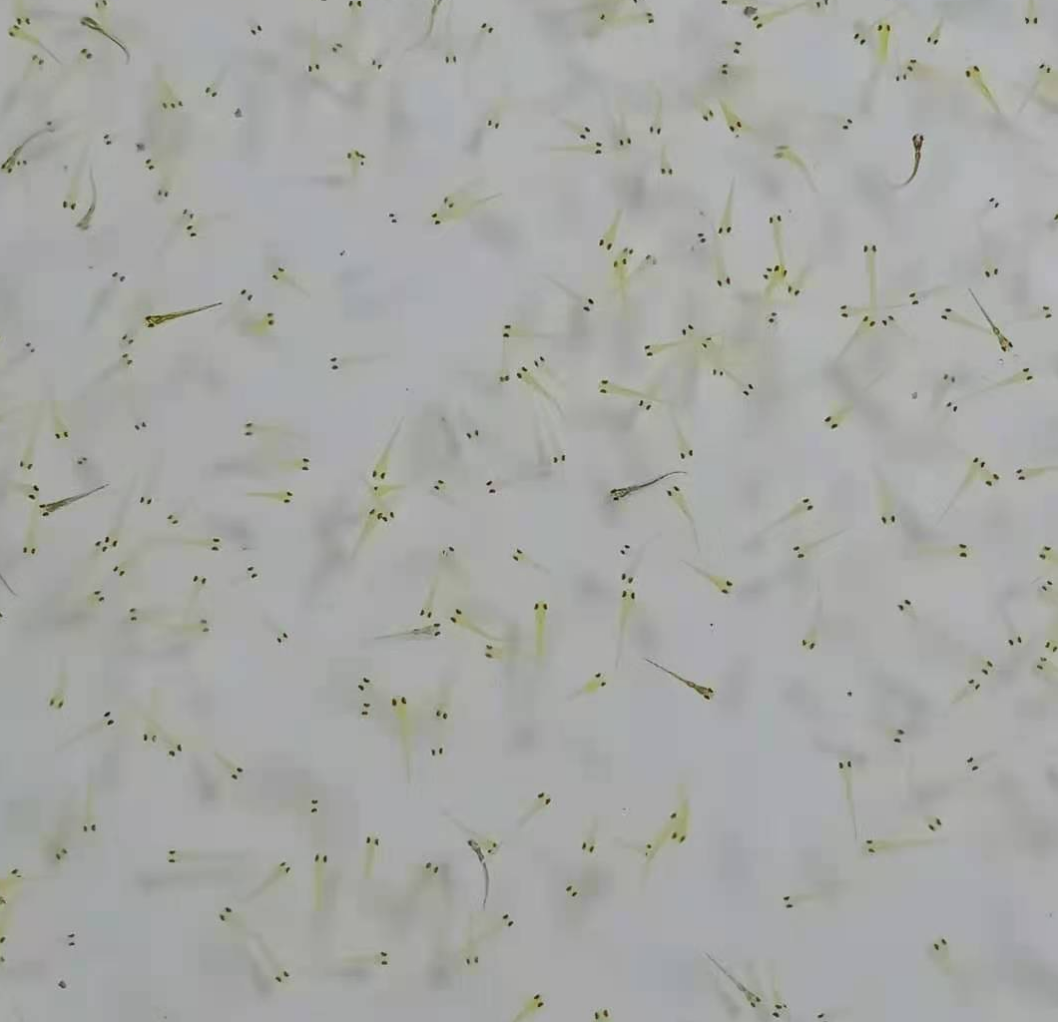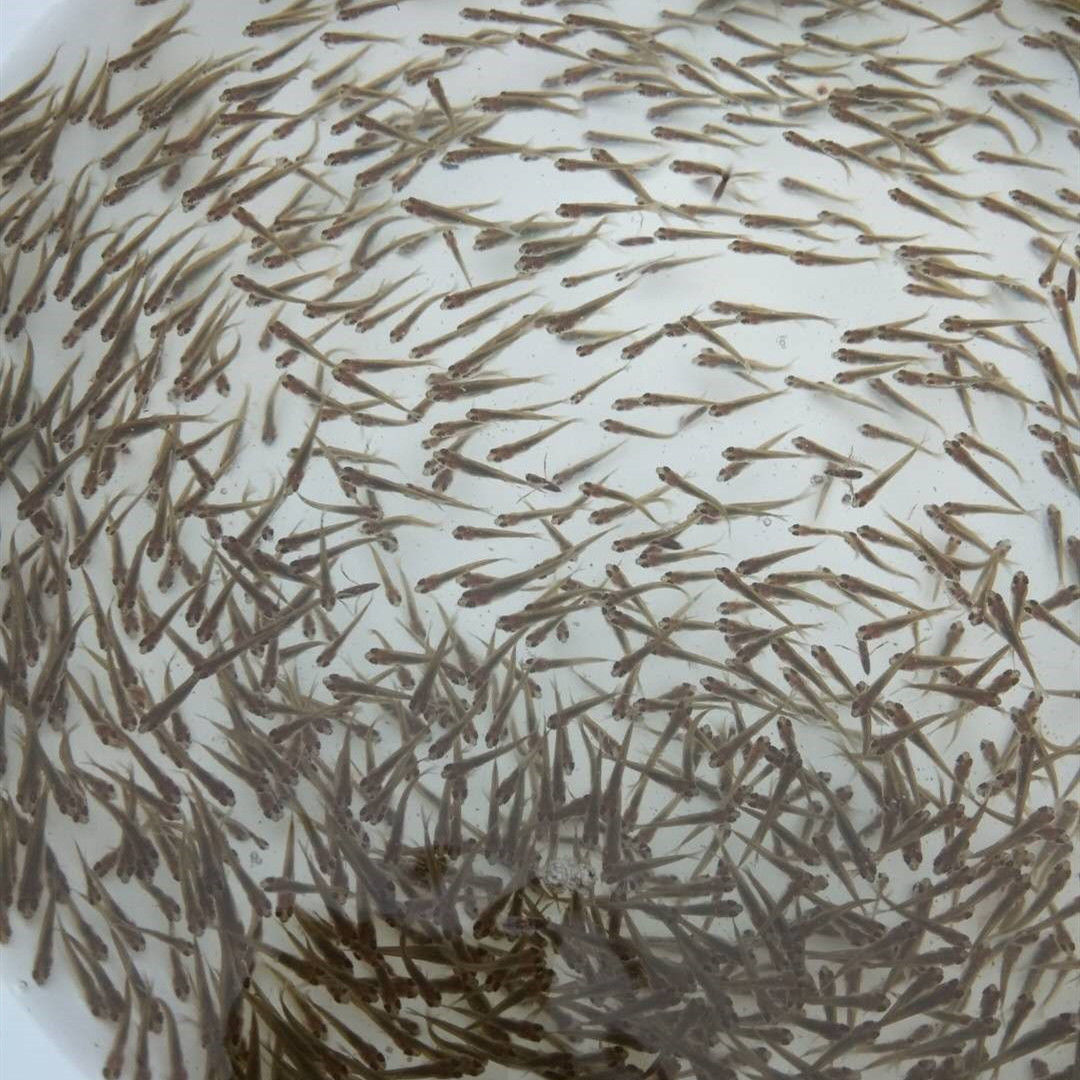Freshwater fry cultivation refers to the process of cultivating the newly hatched young fry of freshwater fish into larger fry through cultivation. And in the early stage of cultivation, the fish fry in just open to eat at this stage, for the future growth is particularly important, we anti-this initial stage is called the opening stage of the fish fry.

From the point of view of feeding, most of the freshwater fish fry are mainly fed with living biological bait. They mainly include rotifers, cladoceRAS, copepods, paramecia, aquatic microalgae and so on. The nutrition of open food is very important. At the same time should also take into account the palatability of different varieties of fish fry seedlings. For most freshwater fishes such as dace and dace, they are omnivorous. Therefore, they can be fed high protein foods such as algae and powder during the breeding stage after opening the mouth to eat.
The general cultivation of fish fry is the spring outside the pond. When the water temperature of the pond rises, the algae will multiply rapidly by throwing nutrients suitable for their growth into the pond. We call this process fatty water. When the water becomes darker, the eggs at the bottom of the pond will be transformed into tiny insects by the heat. This in turn produces a lot of plankton. At this time we put the hatched young fry into the pond, the young fry will feed on the plankton. Over a period of time. When the fry are older, they can be fed artificial food. This is the cultivation of fish fry in the pond.

But the cultivation of outer pond is subject to some external factors. For example, the weather suddenly drops in temperature, heavy rain, exogenous water pollution, the flood of fish pond week enemy, etc. Can be fatal to tiny fry. Therefore, in order to let the fish fry breeding can be carried out smoothly. We can cultivate it with factory recycled water.
Factory recirculating water cultivation is to treat the water quality index to a scientific and reasonable degree under the indoor environment with certain equipment. In this case, the fry are bred. General factory water treatment systems include incubators, filtration systems, thermostatic systems, aeration systems, biological filtration systems, sterilization systems, etc. We can use the method of precipitation and micro filter to remove the organic suspended matter in the water. Constant temperature system We generally use air energy heat pump. It can automatically heat or cool the water according to the set temperature. Aeration system contains a lot of equipment, under different circumstances, the use of aeration equipment is different. If the density is not large, we can use the ordinary fan gas stone way to increase oxygen. If the culture density is very high, we can use pure oxygen dissolving oxygenator to aerate the water. The main task of the biofiltration system is to remove ammonia, nitrite and other substances in the water through the targeted culture of beneficial bacteria. These substances can be toxic to fry in certain concentrations. Therefore, timely and effective removal of these harmful substances, for the success of the factory cultivation has a key role.
Factory circulating water cultivation has the following advantages:
1. The water quality is completely controllable. The temperature and Dissolved oxygen can be controlled reasonably according to different varieties of fry and different stages of fry growth. This can greatly improve the survival rate of fry;
2. Less disease, in the indoor environment of circulating water, artificially add some beneficial strains, so that harmful bacteria are suppressed. The incidence of fry will drop dramatically;
3. Weather change has little effect on the cultivation of fish fry. Can implement order production according to market demand. Out of season sales. Profits can be maximized.
4. The fish fry bred in the factory environment are healthier. Insect pests can be basically eliminated. Fry larvae survive better and grow faster when they enter open ponds.
5. In the process of factory seedling raising, the fish fry can be fed quantitatively according to different stages of production. It's more scientific and reasonable. Feed costs can also be kept to a minimum.

